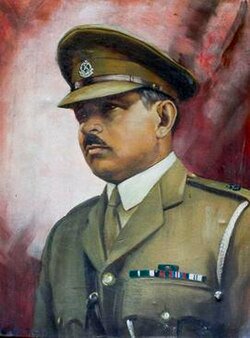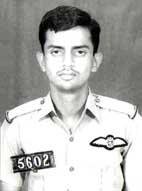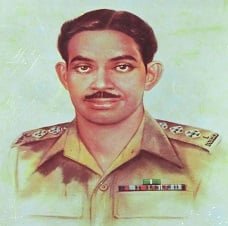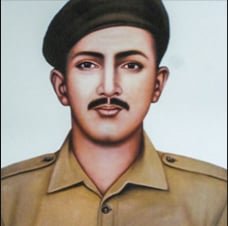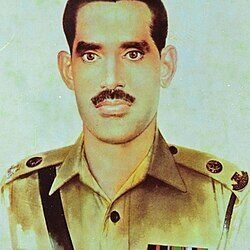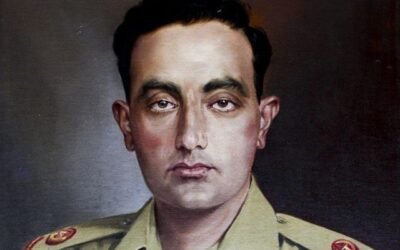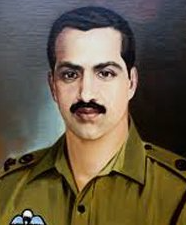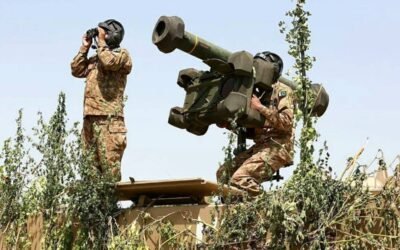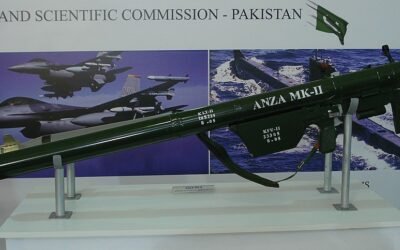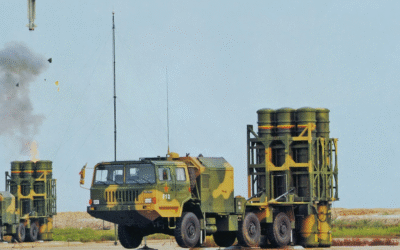Major Tufail Mohammad’s heroism stands as a testament to the courage and selflessness of Pakistan’s armed forces in the face of conflict. He was born on July 22, 1914, in the village of Hoshiarpur in British India’s Punjab region. His early life, like that of many of his contemporaries, was shaped by the strong military traditions of his family and region. He joined the British Indian Army in 1940 and was commissioned into the 16th Punjab Regiment in 1943. After the partition of British India in 1947, he became part of the new Pakistan Army. His dedication and strategic acumen earned him a position in the East Pakistan Rifles (now known as the Border Guards Bangladesh), a paramilitary force responsible for the security of the country’s eastern borders.
In 1958, a border dispute arose between Pakistan and India in the Lakshmipur area of East Pakistan (now Bangladesh). Indian forces had occupied a strategic village, creating a significant security threat. Major Tufail Mohammad, then serving as a company commander, was given the critical task of recapturing the village. He led his troops on a challenging march through the dense jungle and difficult terrain to reach the enemy-held position. The element of surprise was crucial, and his meticulous planning ensured that his men were in position for a multi-pronged assault.
On August 7, 1958, Major Tufail launched his attack. His company advanced stealthily, engaging the enemy at close quarters to minimize casualties. However, the Indian forces were well-entrenched and resisted fiercely with heavy machine-gun fire. During the assault, a machine-gun post held the Pakistani advance at a critical juncture. Major Tufail, leading from the front, saw the grave danger. He began to crawl towards the machine-gun post to neutralize it himself. As he got closer, he was fatally wounded by a burst of machine-gun fire.
Despite his mortal wounds, he refused to give up. With immense courage and determination, he continued to crawl forward. Upon reaching the post, he threw a grenade, successfully eliminating the machine-gun crew. In his final act of defiance, he engaged the remaining enemy soldiers in hand-to-hand combat, displaying a ferocity that stunned his opponents. He single-handedly neutralized another machine-gun post before finally succumbing to his injuries. As he lay dying, his final words to his commanding officer were, “I have completed my duty; the enemy is on the run.” His heroic actions ensured the success of the mission and the recapture of the village.
For his exemplary courage, leadership, and ultimate sacrifice, Major Tufail Mohammad was posthumously awarded the Nishan-e-Haider, the second individual to receive this honor. His valor became a source of national pride and an enduring inspiration. He showed that a single act of bravery, even in the face of death, can turn the tide of a battle. His sacrifice in the remote village of Lakshmipur cemented his place as a hero and a role model for all members of the Pakistan Armed Forces, exemplifying the highest ideals of duty, honor, and courage.

